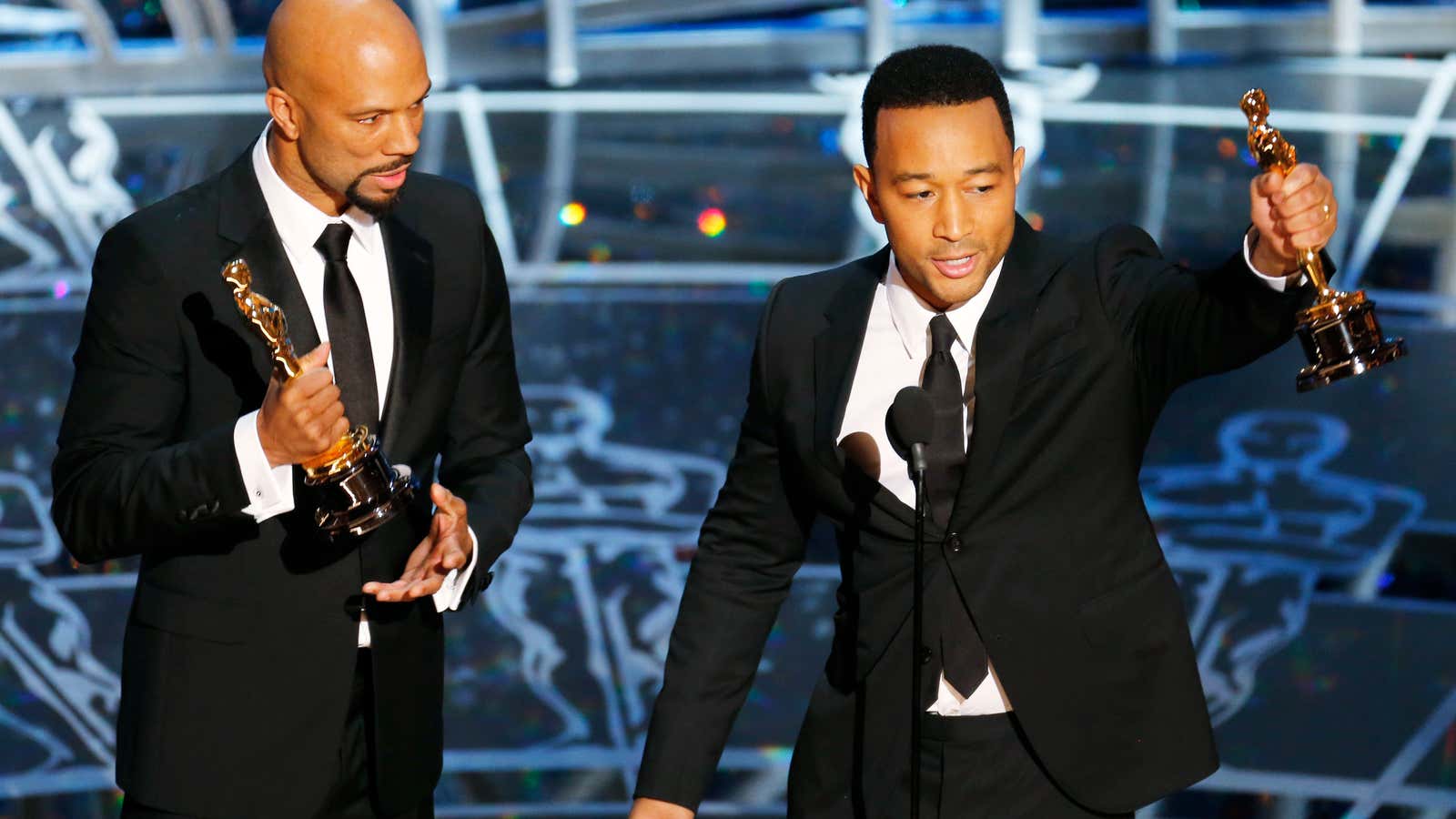Hollywood made a lukewarm attempt last night to acknowledge their failures at diversity. This strategy was summed up by Neil Patrick Harris’ early quip, “Tonight, we honor Hollywood’s best and whitest—I mean brightest,” followed by mellow laughter from the audience. Neither the joke nor its content was much of a surprise of course — the Oscars lack of diversity this year has been a topic of near constant debate. But it did seem like an apt metaphor for the general atmosphere: politically correct, without much substance behind the punchline.
Despite the fact that I generally enjoy the annual awards show, I am increasingly frustrated by the lack of representation I see on stage. Stories about our contemporary struggles, our diversity, our “Boyhood” seem to be left for the Internet, BET, and the few networks trying to capitalize on the success of “newfound” ethnic audiences.
This isn’t the 1970s — we need real diversity, not token white liberalism. This goes for hosts, executives and the nominees themselves. For better or for worse, these men and women have the floor at the moment, with the ability to reach millions of viewers around the world. When John Legend took to the stage last night, he exemplified the way this stage can be leveraged. “Nina Simone said it’s an artist’s duty to reflect the times we’re in,” the singer noted. Yet, the only artists that seemed to focus on issues surrounding race and ethnicity were people of color, proving once again that the onus to expose and fight racial justice still falls on us.
This, once again, is a reminder of the burden of being black today. In today’s society, black folk of all classes still are the ones expected to make sure the dream of equality becomes a reality. And people wonder why all that well-intentioned liberal rhetoric can feel so empty. It’s frustrating year after year to watch your story, your life rendered invisible. And it’s even more frustrating to have to keep writing pieces like these on diversity. “Selma is now,” said Legend. “The struggle for justice is now. The Voting Rights Act that they fought for fifty years ago is being compromised right now in this country today. Right now the struggle for justice is real.”
I will admit, a large part of me hoped that there would be some kind of serious engagement with the diversity issue by the many white actors who graced the Dolby Theater stage, especially after the #oscarssowhite hashtag started to trend and the African-American head of the Academy herself addressed the needed for Hollywood to include more voices. Lest we forget, white actors have stood shoulder to shoulder with minority communities in the past. In 1973, Marlon Brandon famously protested the depiction of Native Americans in film by rejecting his Oscar for The Godfather and sending Sacheen Littlefeather in his place. “The motion picture community has been as responsible as any for degrading the Indian and making a mockery of his character, describing his as savage, hostile and evil,” he later wrote. Black and brown folk are still facing these disparities — so where is the outrage?
Just how far black and brown folks still have to go was highlighted by perhaps the night’s most infamous moment, courtesy of Academy veteran Sean Penn. Introducing best picture award winner Alejandro Inarritu, Mexican director of the celebrated Birdman, Penn said: “Who gave this son of a bitch his green card?” While Inarritu gave Penn a long onstage hug, I, along with several others, cringed. This is how white privilege works in liberal America.
Inarritu for his part was gracious in his speech, joking that the United States government might impose some kind of residency requirements for the Academy. “Maybe next year, the government will inflict some immigration rules (on) the academy,” he said. “Two Mexicans in a row, that’s suspicious, I guess.” Yet, his tone hardened as he turned his attention to the plight of Mexican immigrants in this county, “And the ones that live in this country who are part of the latest generation of immigrants in this country, I just pray that they can be treated with the same dignity and the respect of the ones who came before and built this incredible immigrant nation.”
Here, ultimately, stood two powerful Hollywood insiders. Penn could have used his brief turn in the spotlight for good but instead chose to poke fun, leaving Inarritu to make sure the conversation returned to what was actually important. Inarritu knows the burden of being brown in America.
So what, ultimately, can we viewers and consumers do about it? Do we boycott Hollywood films? I think we should do exactly the opposite. We watch more. We demand better. We demand that studios take better and more risks, we demand that more of our stories be told. And as minorities, we work harder to tell our own stories. We’re seeing this happening slowly but surely in television, as the success of shows like Scandal and Empire seem to have struck a chord with studio executives. But ultimately, this is not enough.
Awareness of any diversity problem is a first step in the right direction, but true change will only come about when black and brown folks are joined by their lighter peers to stand united against such causes as voter ID laws, police brutality and immigration reform. These issue impact all Americans, not simply minorities, and are therefore the responsibility of all Americans, no matter how politically or professionally inconvenient such advocacy might seem.
